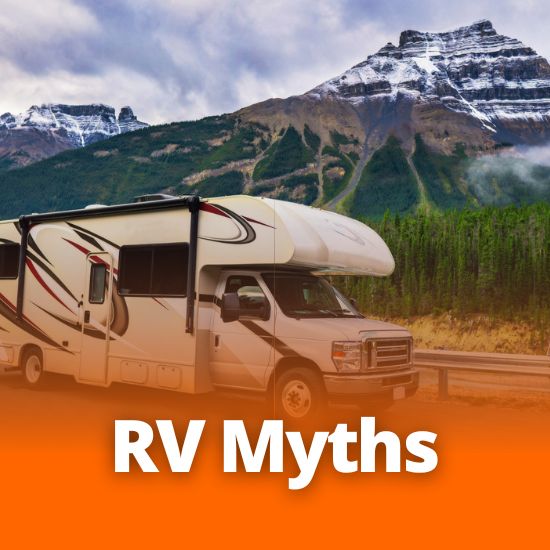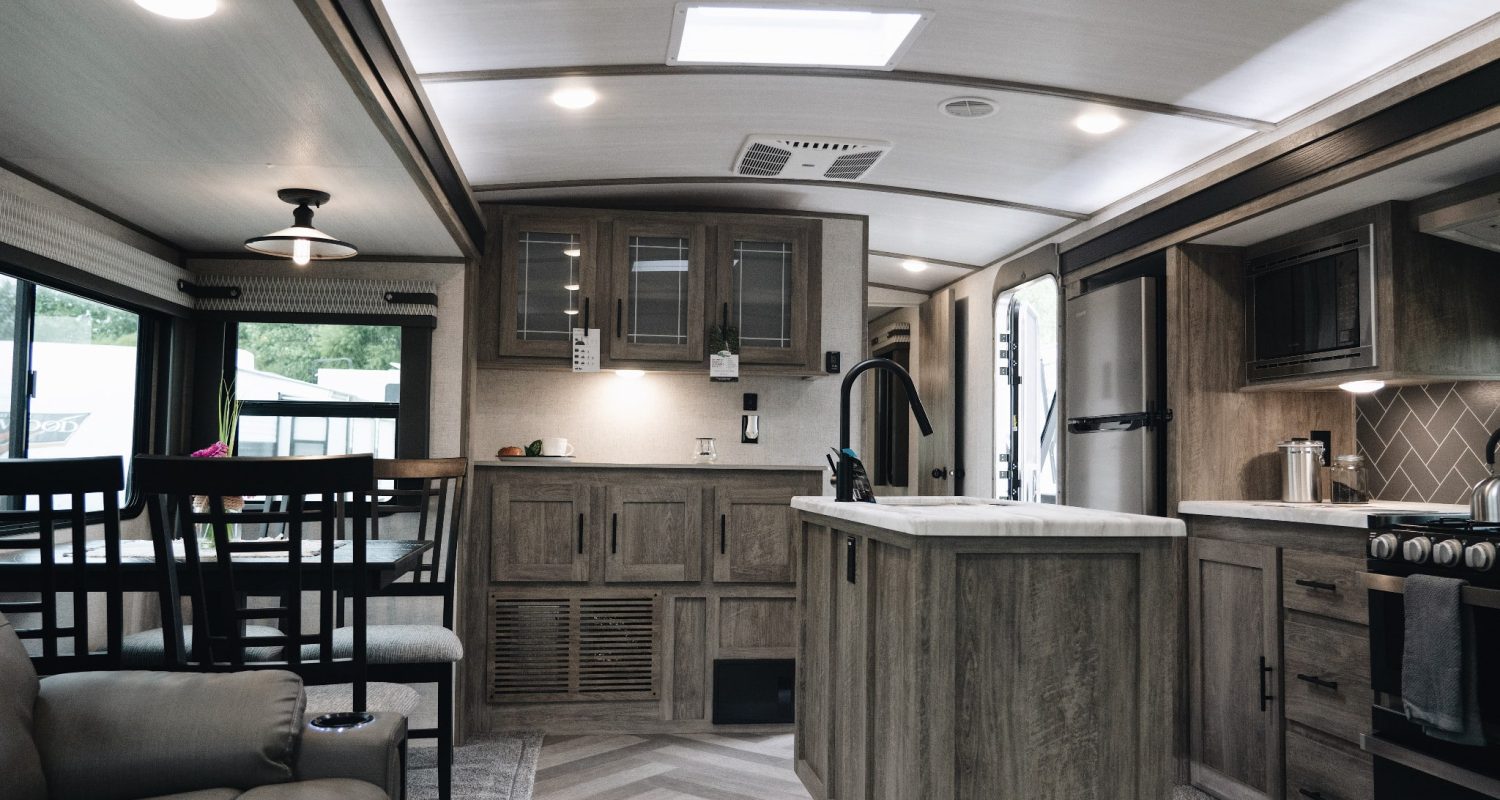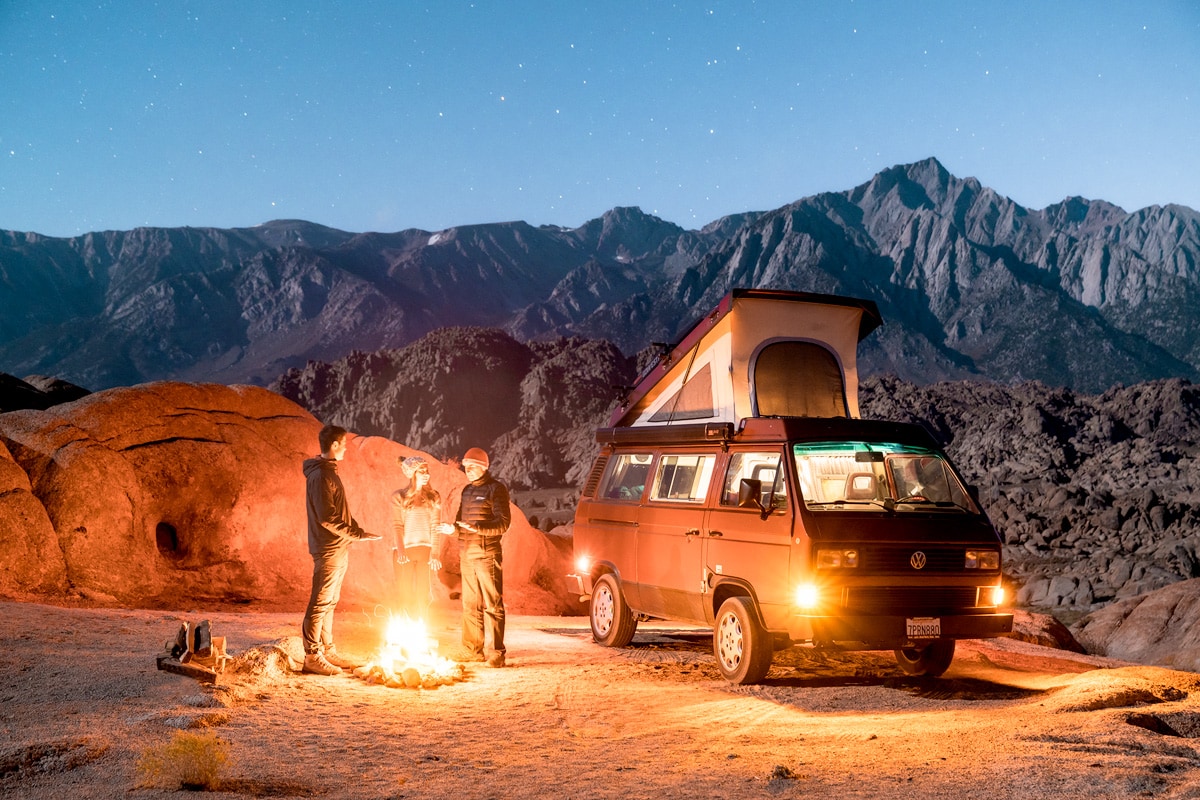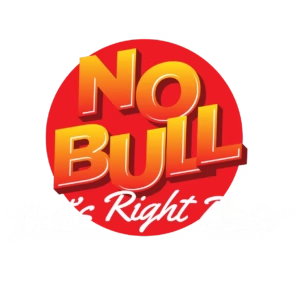
RV Myths
There’s no shortage of myths and “well I heard” around RVing – everything from ages, to accessibility, to money. It doesn’t take long to discover the truth though, did you believe any of these myths before you started RVing?
RVing Is Only for Retired People
Do RV campgrounds and retirement homes blend together in your mind? Golden years, Golden Girls, Golden Ticket, etc. Well thanks to the increased number of remote workers and online schooling (the few things the pandemic that shall not be named gave us that don’t cause trauma responses), only about 40% of RVers are retired.
And in return, RV parks are changing with this evolving demographic.
RVing is Living Rough
RV campgrounds now include 21st century amenities beyond showers and toilets. Internet connections, playgrounds, and family friendly activities like frisbee golf or equipment rentals for everything from paddleboards to snowshoes depending on the time of year.
Beyond that though, RVs are no longer glorified tin cans on wheels. You can get a veritable condo on wheels with flat screen TVs, residential kitchens, multiple bedrooms and in some cases: multiple levels.

You Have to Stay in a Campground
Just because it’s the most common doesn’t mean it’s your only choice. Boondocking is an option many take, saving you some extra cash and giving you extra privacy (as long as you have the right equipment on hand).
RVs are also great for tailgating or travel, letting you have a bathroom, kitchen, and bed available no matter where you are.
You Need a Commercial Driver’s License
Unless you’ve got one heck of a rig with air brakes, a standard license is all a Canadian needs to drive an RV. For Alberta that’s our Class 5 license, without restrictions (such as GDL – thankfully you no longer have to test out of that!) Changes to driver licensing system | Alberta.ca.
Most diesel-engine Class A and Super C motorhomes come with airbrakes; they’re more reliable for stopping large, heavy vehicles than hydraulic. They also operate differently, so you’ll need an air brake endorsement added to your standard license to drive a motorhome weighing over 11,000 kg (24,250 lbs).

RVing is Always Expensive
Look, yes it can be if you’re not smart about it. An average night at a campground is still less than a hotel room, and there are plenty of ways to save some cash. Staying in luxurious parks, moving around constantly, and devoting yourself to ‘touristy’ experiences are quick ways to rack up those dollar signs.
Boondocking, national park campsites, long-term stay discounts, and proper route and meal planning are just a few ways to lower that final bill.
Buying a New RV Means Less Maintenance
A six-figure price tag on a new RV doesn’t mean things won’t break or need maintenance. If you follow a regular maintenance schedule, usually recommended to be monthly by manufacturers, no matter the age of your unit, or how you use it (full time living or only every other summer weekend), regular maintenance must happen in order for everything to stay in good working order.
Buying a used RV already drops your overall investment and there are some elements of maintenance you can do yourself, but be sure you’re doing proper research beforehand and not going in blind or you could end up making an even more costly mistake.
Using an RV Oven is Difficult
This is a favorite and probably the most accepted of RV myths. Sure, it’s a bit different than your residential oven but it’s not crazy challenging. An RV kitchen can be just as functional as one at home with a little bit of prep and planning, and sometimes a bit of adaptation.
Are there any RV myths you know that we didn’t bring up in this list?
